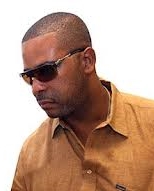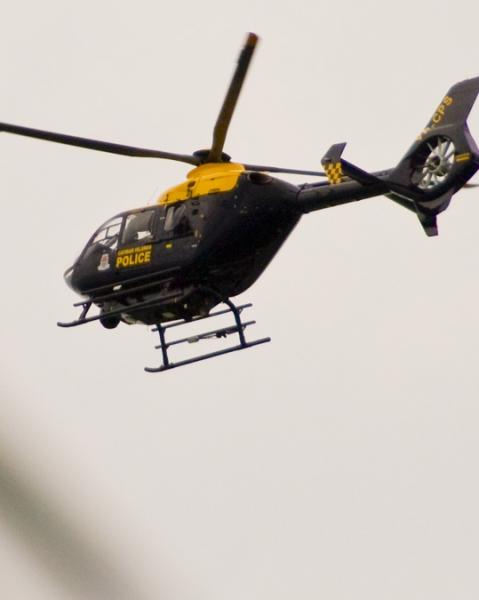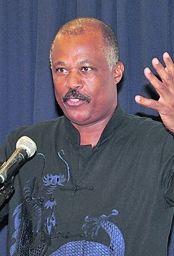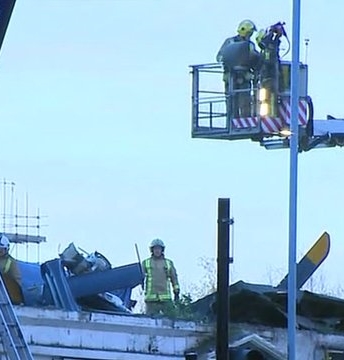 World News
World News

Misick charged with bribery
 (CNS) Updated: Following his extradition home to Turks and Caicos from Brazil, the beleaguered former premier, Michael Misick, has now been charged with conspiracy to bribe. Officials confirmed earlier Tuesday that Misick had arrived in TCI and was expected to be charged with a number of offences. The charges relate to the on-going probe in TCI triggered by the 2009 Commission of Inquiry, which found evidence of systemic corruption during Misick's tenure as the UK territory's leader. Misick’s bail application was initially rejected by a TCI magistrate, before being accepted on appeal by the Turks and Caicos chief justice. Misick was unable to meet bail conditions, officials said, so was remanded to the local jail.
(CNS) Updated: Following his extradition home to Turks and Caicos from Brazil, the beleaguered former premier, Michael Misick, has now been charged with conspiracy to bribe. Officials confirmed earlier Tuesday that Misick had arrived in TCI and was expected to be charged with a number of offences. The charges relate to the on-going probe in TCI triggered by the 2009 Commission of Inquiry, which found evidence of systemic corruption during Misick's tenure as the UK territory's leader. Misick’s bail application was initially rejected by a TCI magistrate, before being accepted on appeal by the Turks and Caicos chief justice. Misick was unable to meet bail conditions, officials said, so was remanded to the local jail.
Officals now plan to apply to add Misick's case to the Information against his co-accused, who are scheduled to face trial in July.
Earlier today the TCI governor's office offered its thanks to the Brazilian authorities and welcomed Misick's return.
“The UK Government welcomes the arrival of former Premier Michael Misick in Turks and Caicos Islands (TCI) to face a number of serious charges relating to corruption and maladministration during his time in office," a statement from the governor's office said.
“It is important for the people of TCI, a UK Overseas Territory, that the rule of law is respected and due process is followed. It will now be down to the TCI Courts to consider Michael Misick’s case as well as that of 14 others charged with similar offences.”
Misick was questioned by the Special Investigation and Prosecution Team, which was set up to investigate the corruption allegations back in 2010.
When Misick was implicated in the investigation he fled and was on the run for some time before he was arrested in Brazil over a year ago on an Interpol warrant.
The current TCI premier, Rufus Ewing, said he welcomed the return of Misick to the "home that he loves, and to his family and friends, who have all been praying for his safe return. Premier Misick will be processed and I trust that through the will of God, fairness and justice will prevail and the rule of law will be executed in a manner that is fair, respectful and transparent as it upholds his basic human rights," he added.

More issues surface over Euro chopper safety
 (CNS): The manufacturers of the Eurocopter have issued a worldwide safety alert to operators of its EC135 model, the type that crashed in Scotland last month killing ten people and the helicopter used by the RCIPS. According to a report posted yesterday on the BBC, the firm said the latest problems were with the low fuel level warning system that had been discovered in a number of aircraft. A spokesman for Eurocopter said EC135 operators in Europe found supply-tank fuel gauging errors that overestimated the fuel on board. The local police air support unit told CNS that the RCIPS is in regular contact with Eurocopter and further safety checks have been conducted and no problems have been found.
(CNS): The manufacturers of the Eurocopter have issued a worldwide safety alert to operators of its EC135 model, the type that crashed in Scotland last month killing ten people and the helicopter used by the RCIPS. According to a report posted yesterday on the BBC, the firm said the latest problems were with the low fuel level warning system that had been discovered in a number of aircraft. A spokesman for Eurocopter said EC135 operators in Europe found supply-tank fuel gauging errors that overestimated the fuel on board. The local police air support unit told CNS that the RCIPS is in regular contact with Eurocopter and further safety checks have been conducted and no problems have been found.
“The priority for all air operations is safety and the RCIPS continues to monitor closely the reports and various investigations for any directions from the manufacturer and other agencies. As such, recent enhanced safety checks were conducted and after the enhanced safety checks were done all systems were found to be working correctly and no issues were found,” a spokesperson from the Air Support Unit said via email on Wednesday. “The RCIPS continue to liaise closely with the Civil Aviation Authority of the Cayman Islands.”
According to the UK reports, Eurocopter said it was issuing a safety notice to remind all EC 135 operators to follow the safety procedures already in place and outlined in the flight manual, regardless of the aircraft's fuel quantity indication
"The first analysis shows that the indication of the fuel quantity in the supply tanks could be overestimated," the company said in a statement. "All crews should be aware that in the worst case a red warning 'Low Fuel' could appear without any amber FUEL Caution before."
There is no suggestion that this latest problem it is linked to the crash at a Glasgow pub on 29 November, when a Scottish police helicopter crashed into the roof of the bar killing the three crew members and seven people inside. Air accident investigators have already said that the aircraft did not run out of fuel. Bond Air Services, which operated the police helicopter, grounded its fleet of 38 EC 135s last week. The move came after an air ambulance, one of its 22 aircraft leased in the UK, was found to have a fuel indicator problem. Tests found others also had the same fault.
The company said it would "update its Safety Information Notice as needed" with investigations continuing.

Mandela laid to rest in home village
 (CNS): Following more than a week of mourning marking the death of the anti-apartheid leader, former South African president and much loved international icon, Nelson Mandela, he was laid to rest in his home village on Sunday near Qunu, in Eastern Cape Province. A 21-gun salute and full honour guard escorted his coffin through the rolling hills of his rural homeland. Along with the African leaders who spoke during theservice, mourners came from all over the world, including celebrities and international leaders. Mandela’s granddaughter, Nandi Mandela, had the last message for the family’s patriarch, known to all by his clan name, Madiba, when she said in Xhosa, “Go well Madiba. Go well to the land of your ancestors. You have run your race.”
(CNS): Following more than a week of mourning marking the death of the anti-apartheid leader, former South African president and much loved international icon, Nelson Mandela, he was laid to rest in his home village on Sunday near Qunu, in Eastern Cape Province. A 21-gun salute and full honour guard escorted his coffin through the rolling hills of his rural homeland. Along with the African leaders who spoke during theservice, mourners came from all over the world, including celebrities and international leaders. Mandela’s granddaughter, Nandi Mandela, had the last message for the family’s patriarch, known to all by his clan name, Madiba, when she said in Xhosa, “Go well Madiba. Go well to the land of your ancestors. You have run your race.”
Mandela died surrounded my family and friends at his Johannesburg home on 5 December at the age of 95 after suffering for some time with a recurring lung infection.
EC135 helicopters flying again after grounding
(CNS) Bond Air Services, which operates the EC135 helicopter, the same model that crashed into a Scottish pub last month and killed ten people and the same helicopter used by the RCIPS, grounded the machines this morning. However, the choppers returned to the air in the UK Thursday night. The suspension of services came after a fault was discovered on an EC135 operated by Bond for the North West Air Ambulance in the UK. All Bond's 22 UK air ambulances and police helicopters were affected, the BBC reported today. The machines which were found not to be at fault were returned to service.
The aircraft's manufacturer, Eurocopter, said it was not telling other operators of the EC135 to ground their helicopters and the local police air support unit was not impacted.
The helicopter operated by Police in Glasgow came down on a busy bar around 10-30 in the evening on 29November. Its three crew and seven people in the pub were killed. An initial report from the Air Accidents Investigation Branch (AAIB) said it had found "no evidence of major mechanical disruption of either engine" on the helicopter.
The police here stated that despite the crash they believed the EC135 had an exceptional safety record.
But Bond Air Services said on Thursday that one of its EC135 fleet experienced an indication defect that requires further technical investigation during normal operations. "As a precautionary measure we have temporarily suspended service operations whilst we undertake detailed diagnosis. We commenced investigations overnight, are continuing this morning and are in close liaison with Eurocopter regarding this investigation," the firm told the UK media this morning.
Eurocopter said the decision taken by Bond did not apply to the rest of the Eurocopter fleet in the UK – a total of 57 aircraft. The manufacturer said it would be working with Bond Aviation and would issue a further statement later.
Bond Air Services temporarily grounded EC 135 models last year as well following safety concerns over the receipt of a Safety Information Notice from Eurocopter regarding cracks on the lower hub shaft flange on the EC 135.
See BBC news item here.

Reparations could fund new regional development
 (CNS): Caribbean leaders have identified a list of socio-economic problems in the region which they say are a direct result of the legacy of slavery, and reparations from the European nations enriched by the salve trade could help shape a new development agenda. A CARICOM commission established to deal with the issue of reparations met in Jamaica Tuesday to advance discussions and formulate a plan to claim financial compensation from the former slave owning states. Chair Professor Sir Hilary Beckles said Caribbean societies were built on the transatlantic slave trade and are uniquely placed to advance the "cause of truth, justice, and reconciliation within the context of reparatory justice" to make amends for the continuing legacy of that crime.
(CNS): Caribbean leaders have identified a list of socio-economic problems in the region which they say are a direct result of the legacy of slavery, and reparations from the European nations enriched by the salve trade could help shape a new development agenda. A CARICOM commission established to deal with the issue of reparations met in Jamaica Tuesday to advance discussions and formulate a plan to claim financial compensation from the former slave owning states. Chair Professor Sir Hilary Beckles said Caribbean societies were built on the transatlantic slave trade and are uniquely placed to advance the "cause of truth, justice, and reconciliation within the context of reparatory justice" to make amends for the continuing legacy of that crime.
The Commission has called upon the former slave-owning nations of Europe, mainly Britain, France, Spain, Portugal, the Netherlands, Norway, Sweden and Denmark, to engage Caribbean governments in reparatory dialogue to address the living legacies of the slave trade. Encouraging CARICOM heads of government to push for talks with the former slave-owning countries enriched by the crime, the commission said reparations could help eradicate the legacy of slavery that still subverts the development efforts in the Caribbean.
The money would be earmarked for six primary socio-economic challenges which Beckles said are a direct result of slavery. From cultural deprivation and psychological trauma to scientific and technological backwardness, the Caribbean is still feeling the impact of the salve trade, Beckles added. In a statement at a press conference held at the UWI, he said that at the end of the colonial period the British left the African descended population, and survivors of the native genocide, in a state of general illiteracy.
“Some 70 percent of these persons were functionally illiterate at the onset of the Independence era. Widespread illiteracy continues to plague Caribbean societies and accounts for significant parts of their development challenges,” he said, as education was identified as one of the six areas that would be boosted by reparations.
.
He spoke too about the criminalization and shattering of both African culture and identity in the region.
“Africans were deculturalized and today remain impoverished in respect or cultural legitimacy and supportive appropriate institutional arrangements,” Beckles said. “Contemporary manifestations of these include low ethnic self-esteem; the devaluation of black identity; broken structures and diminished family values; delegitimization of African derived religion and cultural practices, and disconnection from ancestral roots and culture.”
He said that for over 400 years Africans were classified in law as non-human, chattel, property and real estate.
“They were denied recognition as members of the human family by laws and practices derived from theparliaments and policies of Europe. This history has inflicted massive psychological damage upon African descendants and is evident daily in social life,” he added, emphasizing the reasons for seeking reparations.
Beckles also pointed to the health problems suffered by the African descendants of slaves in the Caribbean who now have the highest incidence in the world of chronic diseases in the form of hypertension and type two diabetes. He said this was, “a direct result of their nutritional exposure, endemic inhumane physical and emotional brutalization and other aspects of the stress experience of slavery and post slavery apartheid.”
The quest for reparations by leaders of Caribbean nations remains a controversial issue. On his recent trip to the region the UK's overseas territories minister, Mark Simmonds, who also has responsibility for the UK’s relationship with the Caribbean, said that Europe was not in a financial position to compensate the region for human atrocities that were perpetrated two centuries ago.
Nevertheless, the leaders continue to press the issue and have also engaged in talks with the specialist UK law firm Leigh Day, which was able to win a major settlement from the British government for thousands of Kenyan clients tortured by the colonial masters during the Mau-Mau rebellion of the 1950s.

CIG opens condolence book for Mandela
 (CNS): As tributes pour in following the death of international icon and former South African president, Nelson Mandela, the Cayman Islands government has opened condolence books to allow members of the public to sign and make comments which will be sent to Mandela’s family. Books are open at the Government Administration Building on Grand Cayman, and the District Administration Building on Cayman Brac. Cabinet secretary Samuel Rose said that Mandela’s stature on the world stage was such that his popularity transcended national boundaries and the integrity of his character and courage of his actions spoke to something deep inside everyone.
(CNS): As tributes pour in following the death of international icon and former South African president, Nelson Mandela, the Cayman Islands government has opened condolence books to allow members of the public to sign and make comments which will be sent to Mandela’s family. Books are open at the Government Administration Building on Grand Cayman, and the District Administration Building on Cayman Brac. Cabinet secretary Samuel Rose said that Mandela’s stature on the world stage was such that his popularity transcended national boundaries and the integrity of his character and courage of his actions spoke to something deep inside everyone.
“Here in the Cayman Islands, many of us came to know and admire Mr Mandela secondhand, whether through media reports, study at school, personal interest or the galvanizing effect that he had on communities across the Caribbean," Rose stated. “To reflect the esteem in which this remarkable and ground breaking leader was held by the people of the Cayman Islands, and to give our community an opportunity to pay their respects and express their sympathies, we invite the public to visit the Government Administration Building on Grand Cayman and the District Administration Building on Cayman Brac to sign condolence books.”
Premier Alden McLaughlin, who expressed his grief at the death of Mandela last Thursday in an official statement, noted how important he was not just to south Africa but the world: “His compassion, humility and humanity were an inspiration not only to his country, but to many of us in the Cayman Islands who want only to make lives better for our people,” he said.
Mandela, who had been illfor some time, died at his home surrounded by friends and family aged 95 years old. He will be given a state funeral, which is expected to be one of the largest in modern time. Some 91 heads of state are expected to descend on South Africa this week. The week-long funeral rites will culminate on Sunday with Mandela's burial at a family plot in his rural boyhood home of Qunu. His body will lie in state for three days from Wednesday in the amphitheatre of the Union Buildings in Pretoria, where he was sworn in as president in 1994.
Each morning, his coffin will be carried through the streets of the capital in a funeral cortege to give as many people as possible the chance to pay their final respects.
Anyone who wishes to sign the Cayman condolence books see here.

Britain marks International Anti-Corruption Day
(CNS): The UK government stated its commitment to tackling corruption both in Britain and abroad, by continuing its push for tax transparency and through the implementation of the Bribery Act. In a joint statement Foreign Secretary William Hague, UK International Anti-Corruption Champion Ken Clarke and International Development Secretary Justine Greening said that reducing corruption and increasing transparency were vital for improving global stability and prosperity. 2013 also marks the 10 year anniversary of the passage of the United Nations Convention Against Corruption, a standard which they encouraged the international community to champion.
The Foreign Secretary said, “Reducing corruption and increasing transparency is at the heart of this Government’s agenda. Through our Presidency of the G8 this year, the UK has secured a landmark agreement to promote tax transparency, tackle the misuse of ownership and legal arrangements by large companies, and announced plans for a UK register of beneficial ownership.
“Last week’s announcement by Transparency International that the UK had improved in the Corruption Perceptions Index was welcome news and reflects the work this Government has been doing to tackle corruption both in this country and abroad.”
Ken Clarke added, “I am proud that the Government have brought in the Bribery Act, a world-leading piece of legislation setting out a modernscheme of bribery offences in the UK and overseas and already giving rise to convictions.
“In my capacity as the UK Government’s Anti-Corruption Champion I am looking forward to working across Government to tackle efforts by those who launder the proceeds of corruption through the UK financial system. We are already pursuing money stolen in the Arab Spring countries.
“There is more to do, however, if we are to raise our standing at home and reduce corruption overseas. The establishment of the National Crime Agency will help continue this important work, as set out in the Serious and Organised Crime Strategy we have recently published. We must also continue to raise international awareness about our strong and comprehensive Bribery Act.”
International Development Secretary Justine Greening added, “When corruption happens in developing countries, it is the very poorest people who foot the bill. It deters investment, cheats citizens out of the services and support theyneed to develop their economies and end aid dependency.
“Stamping out corruption, fraud, money laundering and tax evasion is a vital part of our work. We are tackling the root causes and will support Britain’s world class police units to bring the culprits to justice.”
The UK’s Department for International Development (DFID) has programmes in place to help tackle endemic corruption, fraud and misuse of public funds in 29 priority countries, the release stated.
In addition, DFID funds specialist units in the Metropolitan Police, City of London Police, the Crown Prosecution Service and the Serious Organised Crime Agency to stop foreign or UK criminals from benefitting from corrupt practices in developing countries. Since 2006 over £100 million of assets have been restrained, confiscated or forfeited, and just under £14 million has been returned to developing countries.

Mandela dies at home in Johannesburg age 95
 (CNS): Nelson Mandela, the founding president of the new South Africa, has died at his home aged 95, the country’s current president Jacob Zuma has announced. In an address to the nation, Zuma said Mandela "passed away peacefully". Family had gathered at his home as the former leader had been very ill, having spent nearly three months in hospital with a lung infection. He died at his Johannesburg home at 8.50pm local time. Mandela, who led South Africa's transition from white-minority rule in the 1990s after 27 years in prison, will be given a state funeral. In the wake of the news, Cayman’s premier said it grieved his heart to have learned of the South African hero and former president’s death.
(CNS): Nelson Mandela, the founding president of the new South Africa, has died at his home aged 95, the country’s current president Jacob Zuma has announced. In an address to the nation, Zuma said Mandela "passed away peacefully". Family had gathered at his home as the former leader had been very ill, having spent nearly three months in hospital with a lung infection. He died at his Johannesburg home at 8.50pm local time. Mandela, who led South Africa's transition from white-minority rule in the 1990s after 27 years in prison, will be given a state funeral. In the wake of the news, Cayman’s premier said it grieved his heart to have learned of the South African hero and former president’s death.
“He was one of the most beloved leaders of the 20th Century,” Alden McLaughlin said in a short statement Thursday evening. “His struggle for freedom in South Africa was tireless and it gained him the respect of the world. His compassion, humility and humanity were an inspiration not only to his country, but to many of us in the Cayman Islands who want only to make lives better for our people.
“He brought about reconciliation and hope to the people of South Africa, and while he was controversial for most of his life, he eventually became a shining light of optimism for all of us, all over the world,” he added. .
Even when he was imprisoned for 27 years at Robben Island for trying to overthrow the pro-apartheid government, he rallied prisoners and showed leadership skills that would serve him well when he became that country's first fully-representative democratically elected president, McLaughlin noted.
“We all knew that he had been ill, in and out of hospital for quite some time. But as in all deaths, expected or not, the loss is a heavy burden on our hearts. This is truly a sad day. But we as a world are in a better place for his service to his fellow man, South Africa and the world. I and the people of the Cayman Islands send our condolences not only to his family, but to the South African community as well as the Diaspora," the premier added.

CARICOM to discuss regional teen pregnancy
(CNS): Trinidad will be hosting a conference next week focusing on the problem of teen pregnancy in the Caribbean. CARICOM officials said the purpose of the consultation is to explore the opportunities and challenges in addressing adolescent pregnancy which has been identified by the Caribbean Community as a priority issue. Organized by CARICOM and the United Nations Population Fund with support from the government of Trinidad and Tobago
It will involve various stakeholders and high level officials from the Caribbean who work in that field, will also seek to chart a course of action to educate, empower, support girls, and reduce the incidence of adolescent pregnancy.
According to the UNFPA State of World Population report 2013, motherhood in childhood is a huge global problem, especially in developing countries, where every year 7.3 million girls under the age of 18 give birth. In the Caribbean, despite the fall in total fertility rate, adolescent birth rates remain relatively high. Among girls aged 15 – 19 years old, the birth rate ranges from 26 to 97 per 1,000 adolescent girls. Guyana, Belize, Jamaica, Antigua and Barbuda and Suriname have the highest teen pregnancy rates in the Caribbean.
CARICOM Assistant Secretary-General Human and Social Development Dr Douglas Slater who will be attending the consultation commented that "adolescent pregnancy and births should not be seen merely as a reproductive health issue. There are substantial economic, social and human cost attached to them and tackling this issue should be a priority in every Member State of the Community."

UK police chopper crashes into Scottish pub
 (CNS): Eight people died after a police helicopter crashed into a busy pub in the city of Glasgow, Scotland, Friday night. The chopper was the same model, a Eurocopter EC135 as that used here by the RCIPS Air Support Unit. A major investigation is now under way and the British Air Accidents Investigations Branch will conduct an inquiry into the crash. Two police officers who were inside the helicopter and the civilian pilot were killed, as well as five people in the bar, known as The Cultha. Another 14 people were hospitalized with very serious injuries. The RCIPS said that this type of accident is extremely rare as the model of helicopter has an exceptional safety record.
(CNS): Eight people died after a police helicopter crashed into a busy pub in the city of Glasgow, Scotland, Friday night. The chopper was the same model, a Eurocopter EC135 as that used here by the RCIPS Air Support Unit. A major investigation is now under way and the British Air Accidents Investigations Branch will conduct an inquiry into the crash. Two police officers who were inside the helicopter and the civilian pilot were killed, as well as five people in the bar, known as The Cultha. Another 14 people were hospitalized with very serious injuries. The RCIPS said that this type of accident is extremely rare as the model of helicopter has an exceptional safety record.
The helicopter crashed into the roof of the pub at 10:30pm UK time on Friday night. It is thought about 120 people were in the pub at the time and most were rescued or escaped but others were trapped by a collapse on the left-hand side of the building.
William Byrne, 45, from Coatbridge, who was in the pub when the helicopter came down told the BBC, “There was a loud bang. Then there was dust and the lights went out. It was surreal. We didn't know what had happened. At our side of the pub at least two people were trapped under the gantry. Myself and others lifted it up and managed to get them out. I spent some time with one injured man."
Helicopter operator Bond Air Services said it was working with the police and emergency services to find out how the Eurocopter EC135 came down, which will also be of particular concern to the RCIPS.
Joining with policing services throughout the world in sending condolences to those involved in the crash, a police spokesperson said the RCISP would be informed about the cause.
“This type of accident is extremely rare and this particular model of helicopter has an exceptional safety record. The RCIPS is in direct contact with the manufacturer and as soon as the cause of the crash is known that information will be made available to us.
"Safety is of paramount importance to the RCIPS and we will continue to monitor the situation closely and take any required action. In the meantime, the RCIPS helicopter remains operational," the police stated.
However, according to another report in the UK's Daily Mail on Saturday, the same model of helicopter t was grounded last year amid safety concerns. Safety regulators had issued an emergency alert over the Eurocopter EC135 after a fault was found on an aircraft used by the Scottish Ambulance Service.
The helicopter had been found to have a crack on a rotor blade – a problem which experts said could cause it to crash. It led to air ambulance operators across the UK grounding helicopters as a ‘precautionary measure’, although they were later cleared to fly.